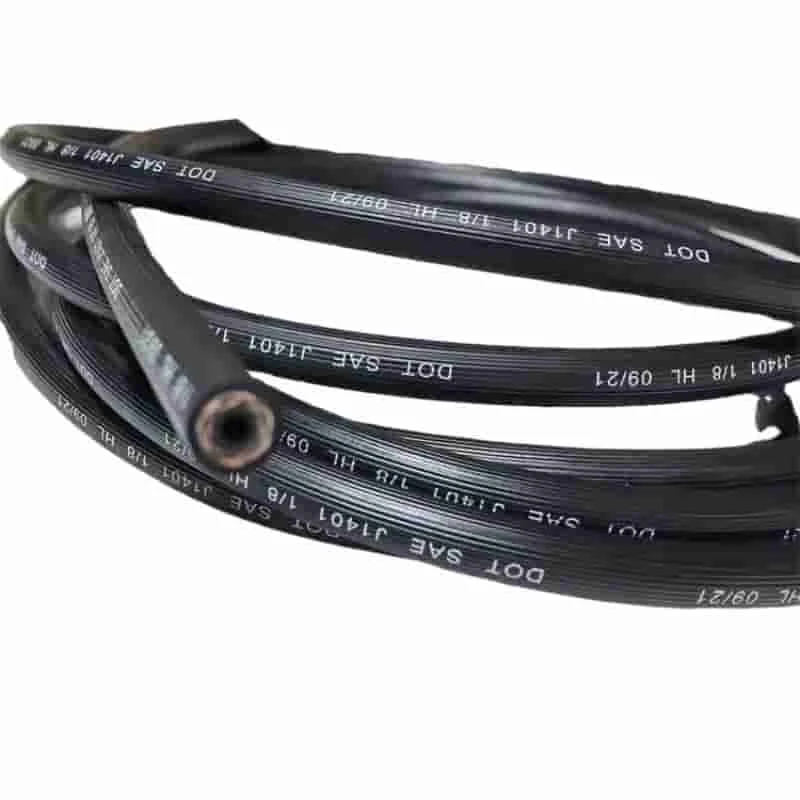car air conditioner hoses
Dec . 25, 2024 19:53 Back to list
car air conditioner hoses
Understanding Car Air Conditioner Hoses A Comprehensive Guide
When it comes to keeping your car comfortable during those hot summer days or chilly winter nights, the air conditioning system plays a crucial role. Among the various components of this system, air conditioner hoses are often overlooked, yet they are vital for the proper functioning of your vehicle’s climate control mechanism. This article aims to shed light on car air conditioner hoses, their functions, types, maintenance, and common issues.
The Role of Air Conditioner Hoses
Air conditioner hoses are responsible for transporting refrigerant throughout the air conditioning system. This fluid, which absorbs and releases heat, is essential for making the air inside your car cool and pleasant. There are two primary types of hoses the suction hose and the discharge hose.
1. Suction Hose The suction hose draws refrigerant from the evaporator to the compressor. It operates under low pressure and is designed to handle the cold refrigerant, often leading to condensation on the outside of the hose.
2. Discharge Hose The discharge hose, on the other hand, carries hot refrigerant from the compressor to the condenser. This hose operates under high pressure and must be durable enough to withstand the increased heat and pressure generated during the compression cycle.
Both of these hoses are crucial for maintaining the proper circulation of refrigerant in your car’s air conditioning system.
Types of Air Conditioner Hoses
Most modern vehicles use rubber or reinforced synthetic hoses, which are designed to withstand various elements. Here are the typical materials used
- Rubber Hoses These are flexible and durable, making them a common choice for many car manufacturers. However, they can degrade over time due to exposure to heat and automotive fluids. - Metal Hoses These are often used in high-performance vehicles. While more expensive, they are highly durable and resistant to wear and tear.
- Composite Hoses A blend of materials, composite hoses are designed for optimal performance. They often combine the flexibility of rubber with the strength of metal.
Maintenance of Air Conditioner Hoses
car air conditioner hoses

Regular maintenance is essential to keep your vehicle's air conditioning system functioning efficiently. Here are a few tips to ensure your hoses remain in good condition
1. Visual Inspection Regularly check your air conditioner hoses for signs of wear, such as cracks, bulges, or leaks. If you notice any abnormalities, it’s vital to address them immediately to prevent further damage to the A/C system.
2. Pressure Checks Have the pressure of your A/C system checked during routine car maintenance. High or low pressure can indicate problems with hoses or other components.
3. Flush Out the System Periodically, it may be necessary to flush the A/C system to remove any debris or contaminants that could damage the hoses.
4. Fluid Levels Ensure that your refrigerant levels are maintained. Low levels can cause the hoses to work harder, leading to potential failure.
Common Issues with Air Conditioner Hoses
Several problems can occur with air conditioner hoses, most of which stem from wear and tear over time. Here are some common issues
- Leaks Cracks or punctures in the hoses can lead to refrigerant leaks. This is not only detrimental to the A/C system’s efficiency but also harmful to the environment.
- Clogs Dirt and debris can sometimes cause clogs in the hoses, preventing the refrigerant from flowing freely. This can lead to poor cooling performance.
- Deterioration Exposure to extreme temperatures and chemicals can cause hoses to deteriorate, leading to brittleness and eventual failure.
Conclusion
Understanding car air conditioner hoses is essential for maintaining an efficient A/C system in your vehicle. Regular inspections, proper maintenance, and immediate attention to any problems can prolong the life of the hoses and ensure your air conditioning system operates smoothly. When the heat of summer kicks in, you’ll be grateful for a comfortable ride—not to mention, a well-functioning air conditioning system is a crucial aspect of vehicle safety, ensuring that you can defog your windshield when necessary. Always consult a professional mechanic if you have concerns about your air conditioning system, ensuring your vehicle remains a safe and comfortable space for you and your passengers.
